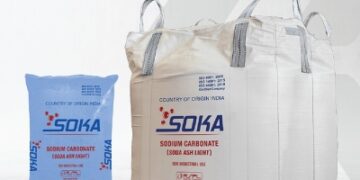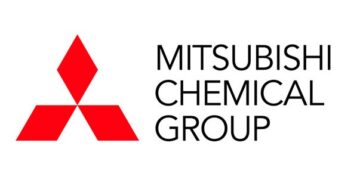The Ministry of Chemicals & Fertilizers has published multiple Gazette notifications repealing quality control orders (QCOs) for a 14 petrochemicals and polymer commodities impactful from 12 November, to ease compliance burden for domestic producers.
These chemical intermediates, synthetic fibres and polymer resins play a main role in the textile production value chain, which has come under intensive stress due to cancellation of US-bound export orders in the back drop of steep 50% US tariffs. QCOs have been rescinded for the following products:
- Terephthalic Acid
- Ethylene Glycol
- 100% Polyester Spun Yarn (Grey & White)
- Polyester Industrial Yarn (IDY)
- Polyester Staple Fibres (PSF)
- Polyester Continuous Filament Fully Drawn Yarn
- Polyester Partially Oriented Yarn
- Polyethylene Material for Moulding & Extrusion
- Acrylonitrile Butadiene Styrene (ABS)
- Polypropylene (PP) for Moulding & Extrusion
- PVC Homopolymers
- Ethylene Vinyl Acetate (EVA) Copolymers
- Polyurethanes
- Polycarbonate
QCOs are import certification needed under the Bureau of Indian Standards (BIS). The QCOs on these products, originally published between 2021 and 2024, mandated that producers and importers of these chemicals aquire BIS certification to sell their products in the Indian market. QCOs were originally launched to ensure minimum
acceptable quality levels amid increasing imports of sub-standard goods, especially from China, while coordinating domestic manufacturing with global standards.
The rollback of QCOs comes after an inner Niti Aayog report highlighted that the compulsory reinforcement of standards on intermediaries and raw materials instead of completing goods has supported to “operational complexities” for the industry. The Niti Aayog report proposed revocation of QCOs on 27 products, out of which 10 are yet to be executed. The think tank also suspension of QCOs on 112 products and deferment of QCOs on the remaining 69 upcoming QCO product categories.
Niti Aayog stated that over the past decade, India’s quality regulatory framework has developed considerably with the enlargement of QCOs. Between 2016 and 2025, the number of products brought under compulsory QCO coverage has grown from less than 70 to nearly 790 products, including one Omnibus Technical Requirement (OTR) that covers 20 products, the Niti Aayog report stated.
“A majority of QCOs have been declared over the past 5 years, with nearly 70% related to raw- materials, intermediates, or capital goods rather than completed consumer products. While this expansion demonstrates India’s commitment to improving product quality and strengthening confidence in “Made-in-India” production, it has also posed certain challenges, especially for MSMEs and export oriented sectors that are dependent on imported inputs. Thus, in many cases, the implementation of these QCOs has resulted in unintended consequences affecting manufacturing competitiveness and the broader objectives of the Make in India initiative,” the report stated.







